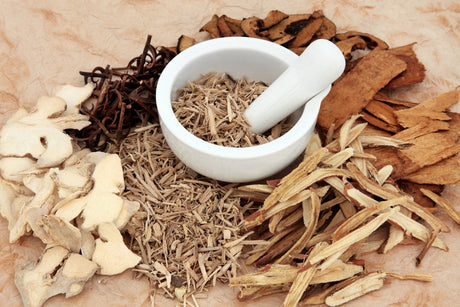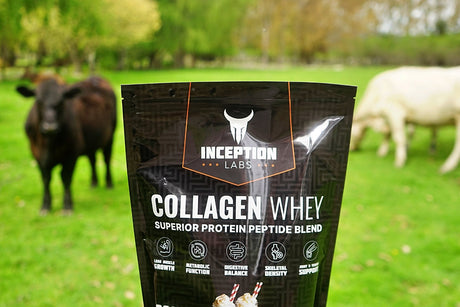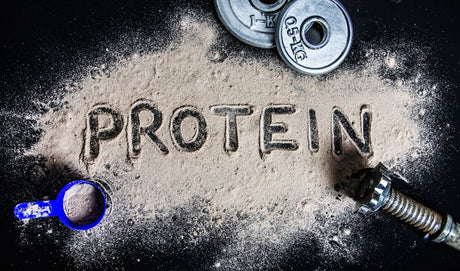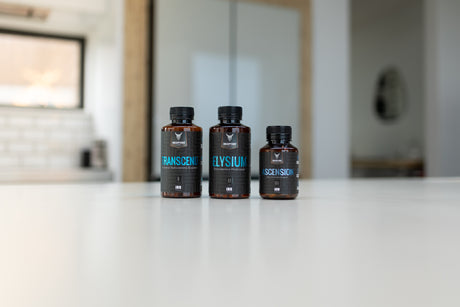The gut microbiome is the collection of microbes that live in the gastrointestinal tract, including bacteria, fungi, protozoa, and viruses. These microbes represent as many as 5,000 species, collectively weigh about 2 kilograms and outnumber human cells 10 to 1.
The gut microbiome is a rapidly growing area of research, with scientists working to understand how this complex and dynamic ecosystem affects our health. Although the gut microbiome is mostly beneficial, an imbalance of gut bacteria (gut dysbiosis) occurs when there is an overgrowth of pathogenic microorganisms or depletion of beneficial microorganisms.
Implications of an imbalanced microbiome
Traditionally it has been thought that the gut microbiome primarily impacted digestion, however there is an increasing body of evidence that the trillions of bacteria that live in our gut have a profound impact on our overall health, with imbalances in the gut microbiome strongly linked to issues in mental health, immunity, metabolism, heart health, and brain function. The gut microbiome also produces vitamins, including B vitamins and vitamin K, and short-chain fatty acids essential to human health. Furthermore, studies have demonstrated a correlation between longevity and a higher diversity of core microbiota species (Biagi et al., 2016; Mello et al., 2016). Another study found strong evidence suggesting the gut microbiome could be a risk factor for Alzheimer’s disease (Marizzoni et al., 2020).
The gut microbiome constantly changes in response to diet, lifestyle, and medications. So how do you know if your gut microbiome is unbalanced? Unfortunately, there is no simple answer, as the signs and symptoms can vary significantly from person to person. However, some typical indications that your gut microbiome might be imbalanced include:
- Bloating, gas, constipation or diarrhoea
- Susceptibility to skin infections or skin problems such as acne or eczema
- Fatigue
- Brain fog
- Unexplained weight gain or weight loss
- Significant and recurring cravings for sugars and refined carbs
- Hormonal imbalances
- Unexplained depression or mood swings
Fortunately, there are several ways to promote a healthy gut microbiome. Some changes to implement for improved gut microbiome include:
Limiting your intake of processed foods and consuming more whole foods.
A growing body of evidence suggests that the composition of the gut microbiome may be linked to a variety of chronic diseases, including obesity, type 2 diabetes, and cardiovascular disease (Vijay, A., Valdes, A.M., 2021). Processed foods are typically high in sugar, unhealthy fats, sodium and artificial ingredients, all of which can disrupt the delicate balance of the gut microbiome, promoting the growth of harmful bacteria and leading to inflammation. By contrast, limiting processed foods and eating a diet rich in fruits, vegetables, and whole grains helps to promote a healthy and more diverse gut microbiome.
Developing a regular exercise regime.
Scientists have long known that there is a link between exercise and gut health. Exercise reduces inflammation in the gut, improves motility, and increases the production of short-chain fatty acids. All of these effects are beneficial for gut health. However, the exact mechanisms by which exercise affects the gut microbiome are not fully understood. A recent study has attempted to shed some light on this question. The study found that exercise increases the diversity of bacterial species in the gut and that this increased diversity is associated with better gut health (Carter et al., 2019). Similar studies also found that exercise alters how bacteria communicate with each other (Monda et al., 2017). This communication is essential for maintaining a healthy balance of bacteria in the gut.
Reducing stress levels.
Chronic stress is associated with changes in the gut microbiome, specifically with decreased levels of beneficial Bifidobacteria. Studies have also shown a direct correlation between stress and gut inflammation (Harvard Health Publishing, 2021). When the body is under stress, it produces cortisol, which can lead to inflammation of the gastrointestinal tract. An imbalance in the microbiome can be linked to several mental health conditions, such as anxiety and depression. Reducing stress can, therefore, positively impact gut health and the microbiome. In turn, this can improve mental wellbeing.
Consuming probiotics and modbiotics.
Probiotics and modbiotics are two terms often used interchangeably, but they actually refer to two different things. While both probiotics and modbiotics offer benefits for gut health, they each have a unique mechanism of action.
Probiotics are live microorganisms, typically bacteria, found in fermented foods like yogurt and sauerkraut and supplements. Probiotics introduce bacteria to the gut, replenish the “good” or “friendly” bacteria population, and are generally recommended for people with an existing gut microbiota imbalance or who have recently taken antibiotics.
Modbiotics, on the other hand, are compounds that modulate the bacterial population in the gut. They work by balancing the environment in your gastrointestinal tract rather than increasing or decreasing the population. Modbiotics are naturally occurring in fruits, vegetables, nuts and seeds, and can also be consumed in supplement form. Modbiotics are recommended for general health and maintaining a healthy, balanced microbiome. They therefore should be consumed consistently rather than as an "ambulance at the bottom of the hill".
Modbiotic supplements such as ATP Science’s Gutright are designed to restore the balance of the gut microbiome that we once enjoyed through an abundance of natural, unrefined, whole foods, but now lack through evolutionary changes to our food preparation methods and dietary selections.
We recommend following ATP Science’s 10-day Modbiotic Protocol for an initial rebalancing of the gut microbiome. Take a scoop of Gutright Original three times per day, eat foods containing simple sugars, and avoid those with complex sugars for 10 days (you can find a comprehensive list of foods to eat and avoid here). Following the 10-day protocol, slowly reintroduce any complex carbs per your usual (healthy) diet that have been avoided for the ten days prior. For ongoing maintenance and balance, consume 1 scoop per day of Gutright Daily.
Bonus hint: Combine Gutright into your morning protein smoothie with ATP Science’s Aurum Oil to maintain both a healthy gut microbiome and essential fatty acid consumption for brain health!
Right now, get a free Aurum Oil with your Gutright Original or Gutright Daily.

|
 |
| Purchase ATP Science Gutright | Purchase ATP Science Gutright Daily |
Authors
Matthew Walley, Elise Walley. 2022. Implications of gut microbiome imbalances and methods to gut harmony.
References
- Biagi E, Franceschi C, Rampelli S, Severgnini M, Ostan R, Turroni S, Consolandi C, Quercia S, Scurti M, Monti D, Capri M, Brigidi P, Candela M. 2016. Gut microbiota and extreme longevity. Current Biology 26:1480-1485
- Harvard Health Publishing 2021, https://www.health.harvard.edu/diseases-and-conditions/the-gut-brain-connection
- Mello AM, Paroni G, Daragjati J, Pilotto A. 2016. Gastrointestinal microbiota and their contribution to healthy aging. Digestive Diseases 34:194-201
- Moira Marizzoni, M., Annamaria Cattaneo, Peppino Mirabelli, Cristina Festari, Nicola Lopizzo, Valentina Nicolosi, Elisa Mombelli, Monica Mazzelli, Delia Luongo, Daniele Naviglio, Luigi Coppola, Marco Salvatore, Giovanni B. Frisoni. Short-Chain Fatty Acids and Lipopolysaccharide as Mediators Between Gut Dysbiosis and Amyloid Pathology in Alzheimer’s Disease. Journal of Alzheimer's Disease, 2020; 78 (2)
- Monda, V., Villano, I., Messina, A., Valenzano, A., Esposito, T., Moscatelli, F., Viggiano, A., Cibelli, G., Chieffi, S., Monda, M., & Messina, G. (2017). Exercise Modifies the Gut Microbiota with Positive Health Effects. Oxidative medicine and cellular longevity, 2017, 3831972. https://doi.org/10.1155/2017/3831972
- Stephen J. Carter, Gary R. Hunter, J. Walker Blackston, Nianjun Liu, Elliot J. Lefkowitz, William J. Van Der Pol, Casey D. Morrow, Jesseca A. Paulsen, Laura Q. Rogers. Gut microbiota diversity associates with cardiorespiratory fitness in post-primary treatment breast cancer survivors. Experimental Physiology, 2019.
- Vijay, A., Valdes, A.M. Role of the gut microbiome in chronic diseases: a narrative review. Eur J Clin Nutr (2021). https://doi.org/10.1038/s41430-021-00991-6










